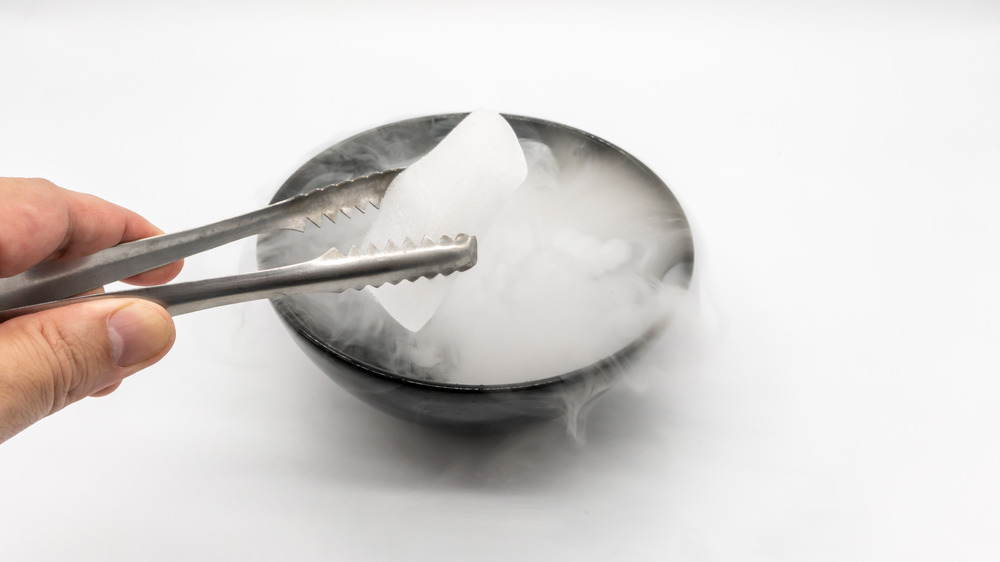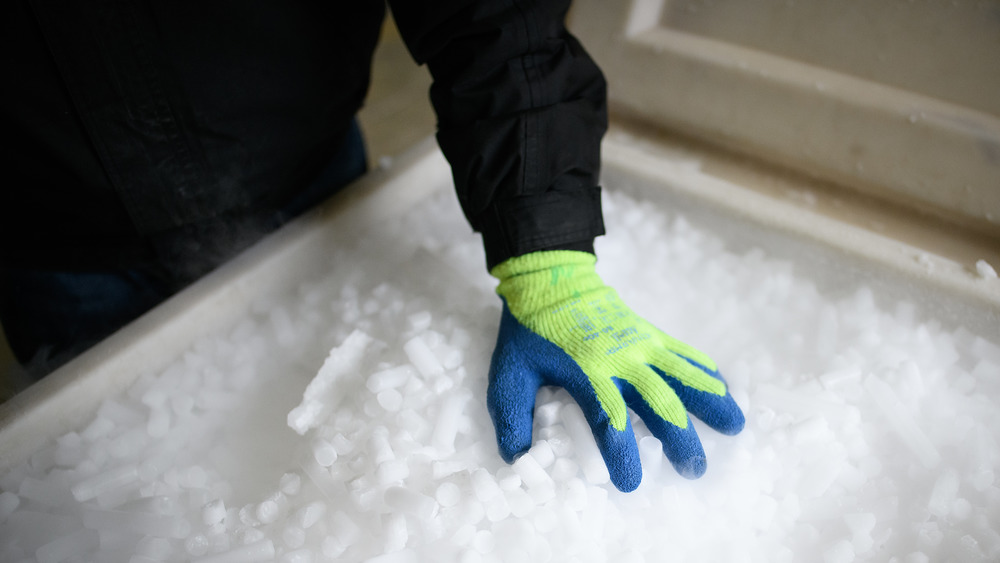Why Pfizer's Potential COVID-19 Vaccine Is Boosting Dry Ice Sales
A potential COVID-19 vaccine from drug manufacturers Pfizer and BioNTech needs to be distributed in extreme cold, causing an uptick in sales of dry ice and medical-grade freezers, USA Today reports.
Dry ice is a frozen form of carbon dioxide. It has such a low surface temperature — about 109 degrees below Fahrenheit — that it can cause severe burns if you handle it without gloves or other protective gear (via How Stuff Works). It's ideal for shipping something that requires refrigeration because unlike the ice consumers have in the freezer, dry ice turns directly into carbon dioxide gas as it breaks down, leaving no liquid behind. If you've seen billowy fog in a stage show or a haunted house, that's dry ice in action: Putting a piece of dry ice in water creates this fog (via ThoughtCo.).
Pfizer, based in New York City, and BioNTech of Mainz, Germany, last week announced that the potential COVID-19 vaccine they've been developing was more than 90 percent effective in preventing the coronavirus in a clinical trial. Both companies are generating data to ensure the vaccine's safety and efficacy but planned to ask the U.S. Food and Drug Administration to authorize its use by the end of the month.
States have known for months that Pfizer's potential vaccine required extreme cold for storage and distribution, but the announcement from Pfizer and BioNTech kicked the preparations for transportation and storage into high gear, USA Today said.
Medical-grade dry ice is in high demand with Pfizer's announcement
Gehm & Sons, an ice company founded in Akron, Ohio in the 1880s, told USA Today that they've been fielding calls from hospitals and a pharmacy and grocery chain, as well as the Ohio health department. The health department requested 15,000 pounds of dry ice a week, the company said.
Sales of medical-grade freezers also are on the rise. Stirling Ultracold, an Athens, Ohio, company that makes laboratory-grade freezers, told USA Today that their sales are up 250 percent from the first quarter.
Currently, 11 vaccines are in late-stage trials, including four in the United States, The New York Times said. Pfizer's potential vaccine is the only one that requires such a low temperature (via USA Today).
This week, the Massachusetts-based biotechnology company Moderna announced that its potential COVID-19 vaccine has proven 94.5 percent effective during a trial. However, the potential Moderna vaccine is stable at regular refrigerator temperatures for 30 days and also can be stored at room temperature for up to 12 hours (via USA Today).


